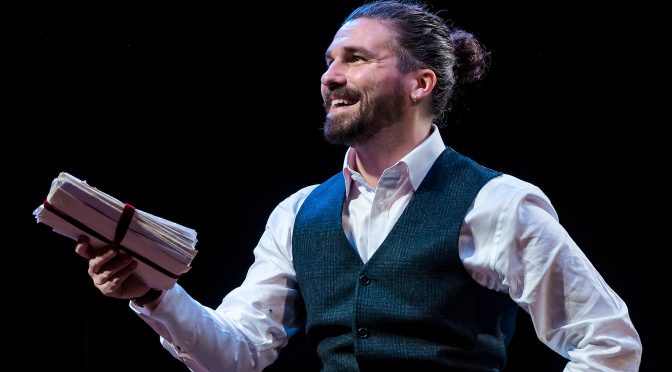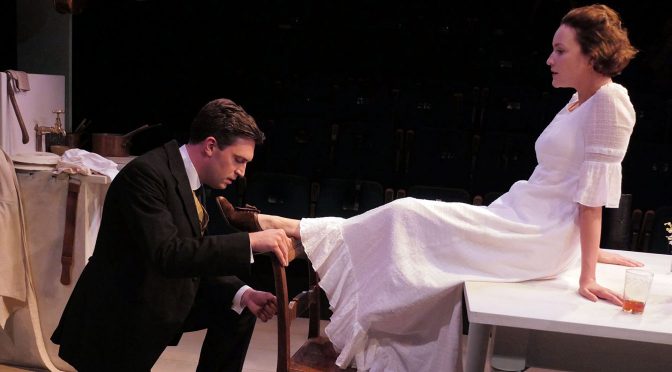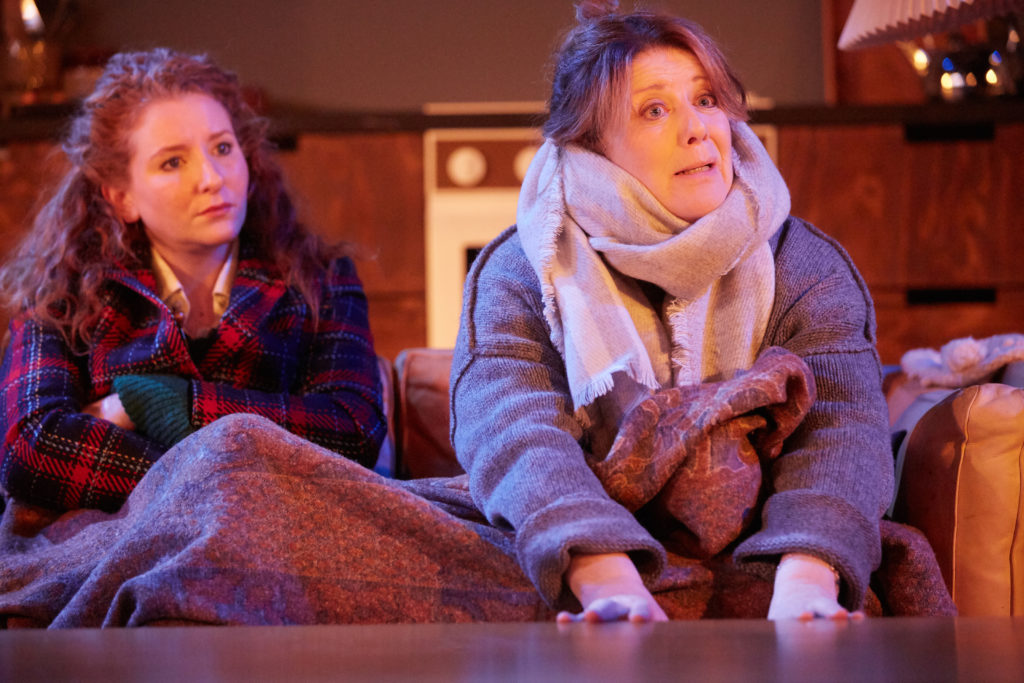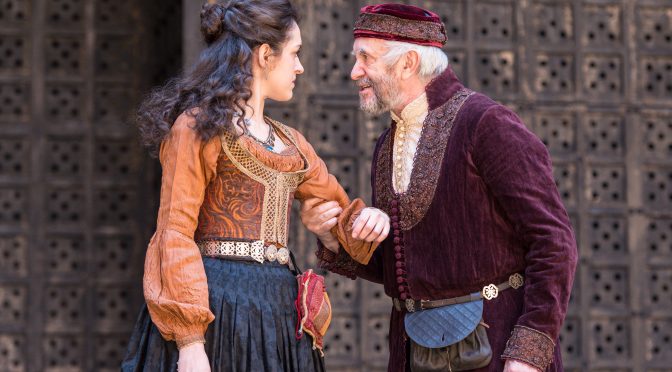Two Bernard Shaw tales of topsy-turvy love affairs – smart, insightful and great fun – make a strong beginning for this Richmond venue’s exciting ‘Recovery’ season.
Directed with precision by Shaw expert Paul Miller, both half-hour pieces poke fun at moralising and pretension, taking a dig at contrarian sophisticates (Shaw even puts in a joke at his own expense). The dense dialogue – impeccably delivered – brims with intelligence and wit.
How He Lied To Her Husband
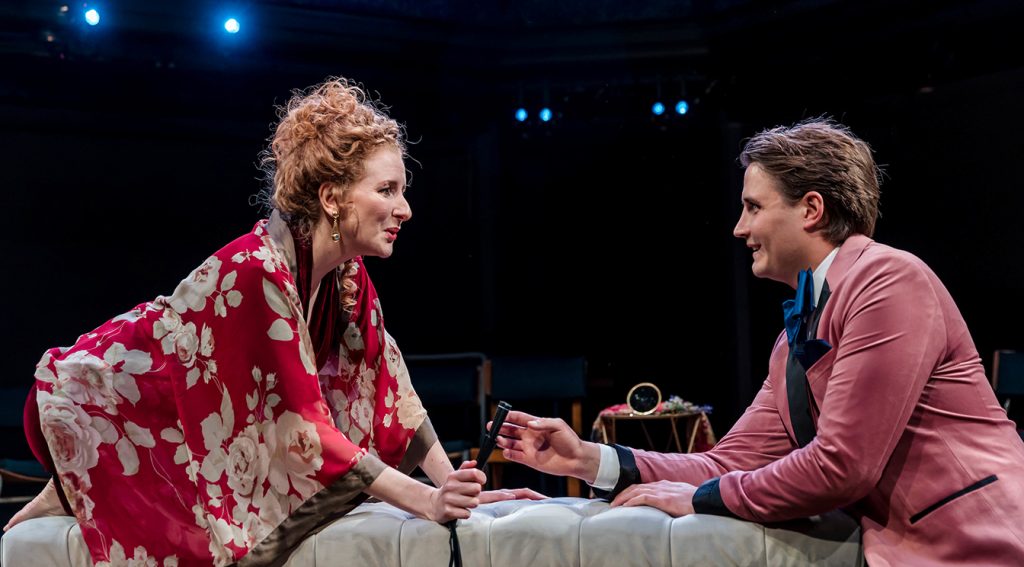
First up is an almost-affair between a married woman and a young poet that has delightful performances from Dorothea Myer-Bennett and Joe Bolland. “Nothing improper” has happened between Mrs Bompas and Mr Apjohn… and, just as it might, they start to argue.
The arrival of the husband provides a neat twist that Jordan Mifsúd (pictured top), who brings considerable swagger to the “prosaic” Mr Bompas, makes the most of. The dynamic between the trio proves unexpected and builds in humour.
To the detriment of the whole, Shaw is preoccupied with the character of Apjohn, the poet, who makes silly claims to live on a “higher plane” and feels “growing pains” at his loss of Romanticism. Despite Miller’s balanced direction and Bolland’s efforts, the satire and the fin-de-siècle trope of anguished artist, hasn’t aged well.
Overruled
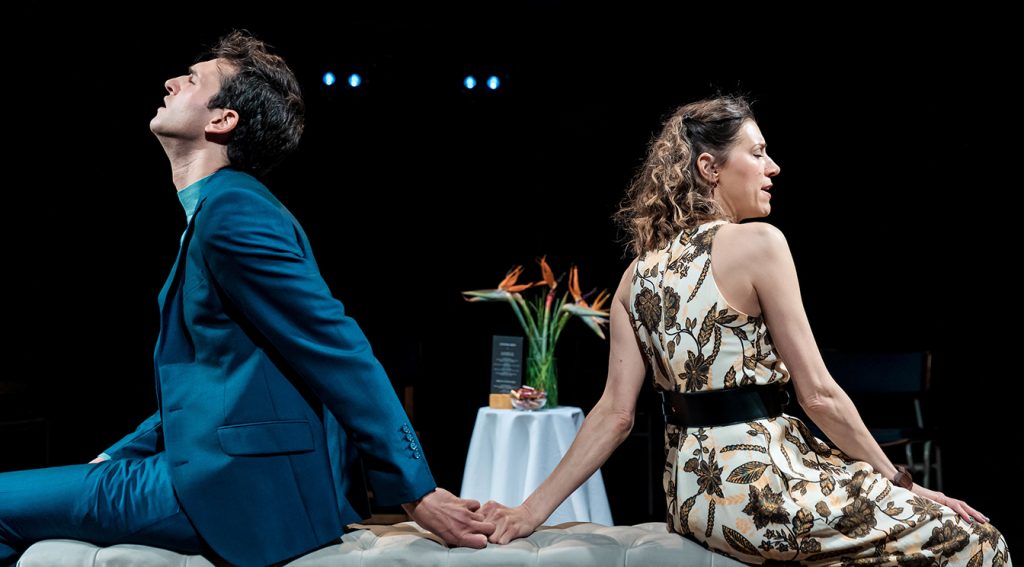
Time has been kinder to the second show, which is funnier as a result. Two couples have holiday romances with each other, then accidentally meet, and even attempt to compromise about continuing their flirtations.
The base for the comedy is strong and the women in the piece stronger. With another superb performance (in a more interesting role) Myers-Bennett is joined by Hara Yannas, who differentiates her sweeter character well.
The men – hopeless in different ways – are funnier still as we get to laugh at their neurosis and (always a hoot) a touch of mid-life crisis. Mifsúd lets his hair down (literally) as a lawyer on the loose, while Alex Bhat has a great time with tongue-twisting lines and convoluted arguments.
All the characters give the impression that the risks of an extra marital affair are more exciting than the sex involved itself… a view Shaw mocks as abstract and downright odd. The comedic tension created is, like the claims made about the danger of an affair, “delicious”. And the delivery from all, marked by a justified confidence, is a real treat.
Enjoy the plays live or take advantage of the OT ON SCREEN programme (planned for the whole season), which broadcasts this show on 3 and 4 June.
Until 26 June 2021
Photos by The Other Richard

